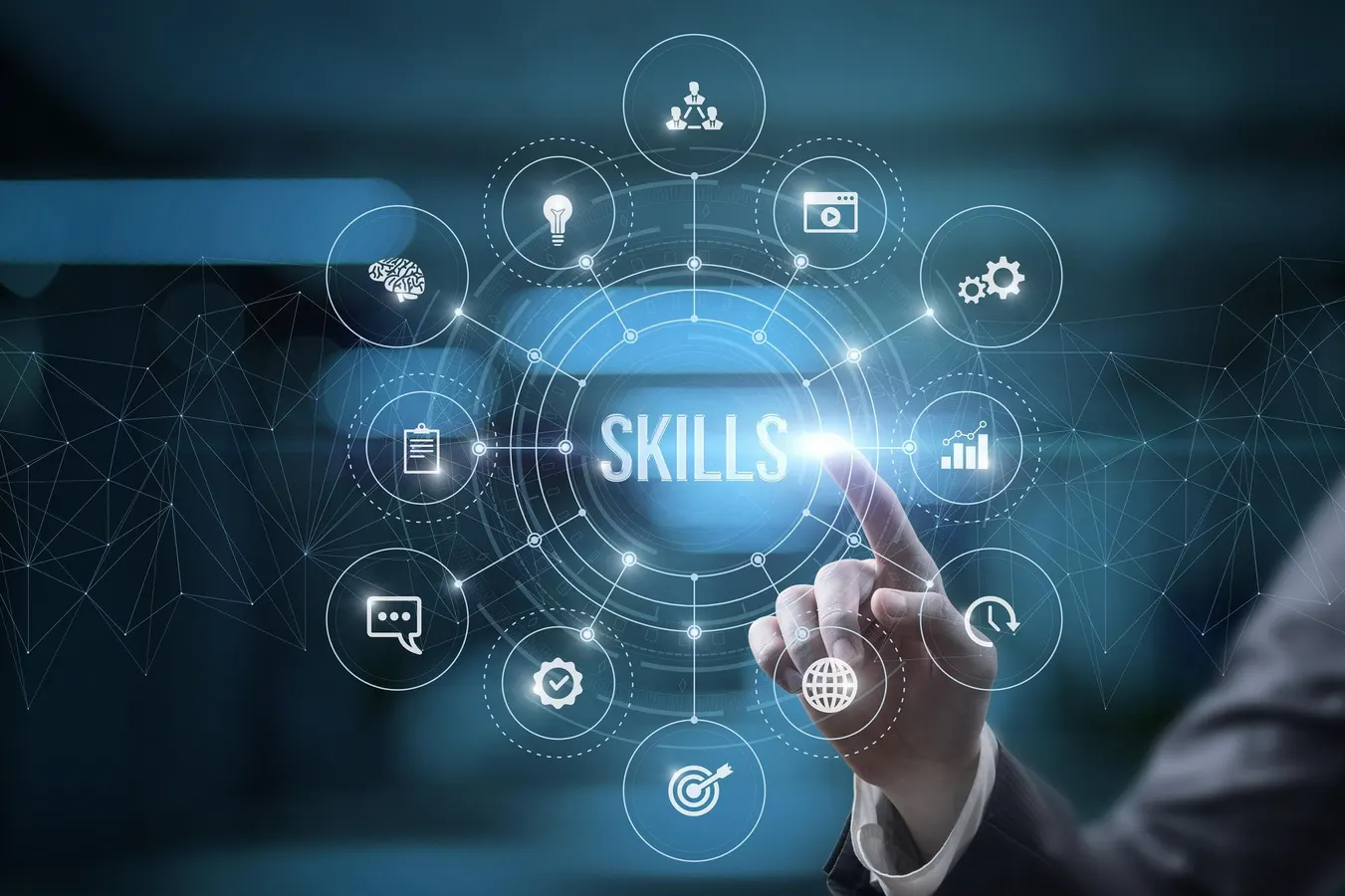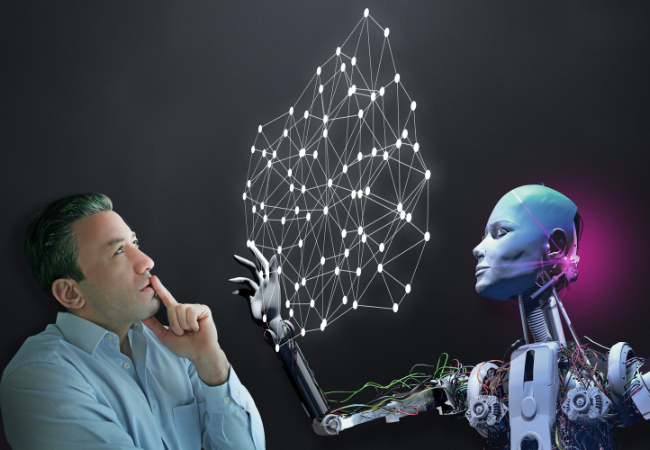The future of work is rapidly changing as technology advances and the job market evolves. To thrive in the next decade, professionals need to possess essential skills that align with emerging employment trends and job market advancements. In this article, we will explore the key skills required for the future of work, allowing individuals to stay ahead of the game and enhance their career development strategies.
Key Takeaways:
- Developing essential professional skills is crucial for workforce readiness in the next decade.
- The future of work will demand a diverse set of emerging skills to meet the changing job market.
- Professionals can enhance their career prospects by acquiring the necessary skills for the future of work.
- Adapting to technological advancements and embracing automation is essential for staying competitive in the digital era.
- Building strong interpersonal skills, such as emotional intelligence and collaboration, will be key for success.
Multi-Disciplinary Thinking: Making Connections in a Changing Work Environment
Multi-disciplinary thinking is a crucial skill for professionals in the future of work. This skill enables individuals to make sense of complex situations, form connections between different disciplines, and foster a curiosity for continuous learning.
Professionals who can take a multidisciplinary approach can approach problems differently, redefine them, and come up with unique solutions.
This skill requires a working knowledge of various disciplines and the ability to make connections between them.

Why is multi-disciplinary thinking important?
As industries become more interconnected and complex, professionals need to have a broad understanding of different disciplines and be able to connect ideas across them. Multi-disciplinary thinking allows individuals to draw on diverse knowledge and perspectives, enabling them to tackle problems from various angles and find innovative solutions.
Developing sense-making skills
Sense-making skills are crucial for multi-disciplinary thinking. It involves the ability to analyze and interpret information from different disciplines, identify patterns, and draw meaningful conclusions. Professionals with strong sense-making skills can effectively navigate the complexities of the modern work environment and make informed decisions.
Problem-solving in a multidisciplinary context
Problem-solving is a critical aspect of multi-disciplinary thinking. Professionals must be able to identify problems, break them down into manageable parts, and develop creative solutions that consider multiple perspectives. By connecting different disciplines, professionals can bring fresh insights and approaches to problem-solving, leading to more effective and innovative outcomes.
Enhancing the decision-making process
Multi-disciplinary thinking contributes to better decision-making by providing a broader context and perspective. Professionals with this skill can consider a wide range of factors and potential impacts before making decisions, resulting in more well-rounded and informed choices. By integrating knowledge from different disciplines, they can mitigate risks and identify opportunities that might have been overlooked.
Cultivating a multi-disciplinary mindset
Developing a multi-disciplinary mindset requires continuous learning and an open-minded approach. Professionals can actively seek out opportunities to connect with experts from different fields, participate in cross-disciplinary projects, and engage in ongoing education. This mindset fosters creativity, adaptability, and the ability to thrive in a rapidly changing work environment.
| Benefits of Multi-Disciplinary Thinking | Skills and Characteristics |
|---|---|
| 1. Enhanced problem-solving | – Ability to connect ideas from different disciplines |
| 2. Innovation and creativity | – Openness to different perspectives |
| 3. Robust decision-making | – Considering diverse factors and impacts |
| 4. Adaptability in a changing work environment | – Continuous learning and curiosity |
Emotional Intelligence: Empathy and Collaboration in the Workplace
Emotional intelligence plays a pivotal role in the future of work, empowering professionals to navigate the complexities of interpersonal dynamics and foster a harmonious work environment. This crucial skill equips individuals with the ability to understand, manage, and leverage their own emotions while empathetically connecting with others to enhance collaboration.
Understanding and managing one’s own emotions is the foundation of emotional intelligence. By developing self-awareness, professionals can identify their emotional triggers, manage stress, and make conscious decisions that positively impact their interactions with others. This self-regulation fosters a positive work environment, improving productivity and overall job satisfaction.
Empathy is a key component of emotional intelligence, enabling professionals to perceive and understand the emotions, needs, and perspectives of their colleagues. By placing themselves in others’ shoes, individuals with high levels of empathy can cultivate culture-sensitive interactions, transcending diverse backgrounds and promoting inclusivity in the workplace. This empathetic understanding helps to build strong relationships, foster trust, and create a collaborative environment where diverse ideas can flourish.
Collaboration is enhanced when professionals possess emotional intelligence. Resolving conflicts and managing emotional responses becomes smoother with heightened self-awareness and empathy. Emotional intelligence equips individuals with effective conflict resolution skills, allowing for the open and respectful communication necessary to reach mutually beneficial solutions. Furthermore, professionals with emotional intelligence can motivate and inspire their colleagues, fostering a culture of teamwork and cooperation.
In the future of work, with its increasingly diverse cultures and backgrounds, emotional intelligence will be an indispensable asset. This skill enables professionals to bridge cultural gaps, communicate effectively with individuals from different backgrounds, and thrive in culturally diverse teams.
Coaching and mentoring skills will also become essential as the workforce continues to evolve. Professionals who possess emotional intelligence can effectively coach and mentor their colleagues, offering guidance, support, and personalized development opportunities. This not only helps individuals to grow and succeed but also strengthens the overall team and nurtures a culture of continuous learning and collaboration.
Emotional Intelligence at a Glance
| Advantages of Emotional Intelligence in the Workplace | Benefits |
|---|---|
| Enhanced collaboration and teamwork | Improved communication and understanding among team members, leading to effective collaboration, creative problem-solving, and innovation. |
| Conflict resolution | Ability to navigate and resolve conflicts by understanding emotions, managing individual and team dynamics, and fostering positive relationships. |
| Cultural competence | Facilitation of effective communication and interaction with colleagues from diverse cultural backgrounds, leading to a more inclusive work environment and increased creativity. |
| Leadership development | Emotional intelligence facilitates effective leadership by inspiring trust, motivating teams, and empowering individuals to reach their full potential. |
| Personal growth and job satisfaction | Individuals with emotional intelligence experience personal growth, higher job satisfaction, and increased resilience in the face of challenges. |
Creative Problem Solving: Thinking Outside the Box in the Digital Era
Creative problem-solving is a critical skill that professionals need to thrive in the future of work. In an evolving job market, the ability to think outside the box and come up with innovative solutions is highly valued. It’s important to note that creativity is not limited to artistic fields; it is relevant across industries.
What sets creative problem-solving apart is its unique approach to tackling challenges. It involves looking at problems from different angles, connecting the dots between various processes, and finding creative and effective solutions. This skill is highly sought after by employers as it enables professionals to adapt to changing demands and find win-win solutions.
In the digital era, professionals need to be adaptable and embrace technology to leverage their creative problem-solving skills fully. Automation and technological advancements have changed the way we work, requiring professionals to stay up-to-date with the latest tools and techniques. By combining their creative thinking with technological expertise, professionals can unlock new possibilities and excel in their roles.
Source Links
- https://www.deployyourself.com/life/essential-work-skills-future-2020s/
- https://www.ft.com/content/74d3c16a-1f35-11ea-92da-f0c92e957a96
- https://futureskills2020s.com/












